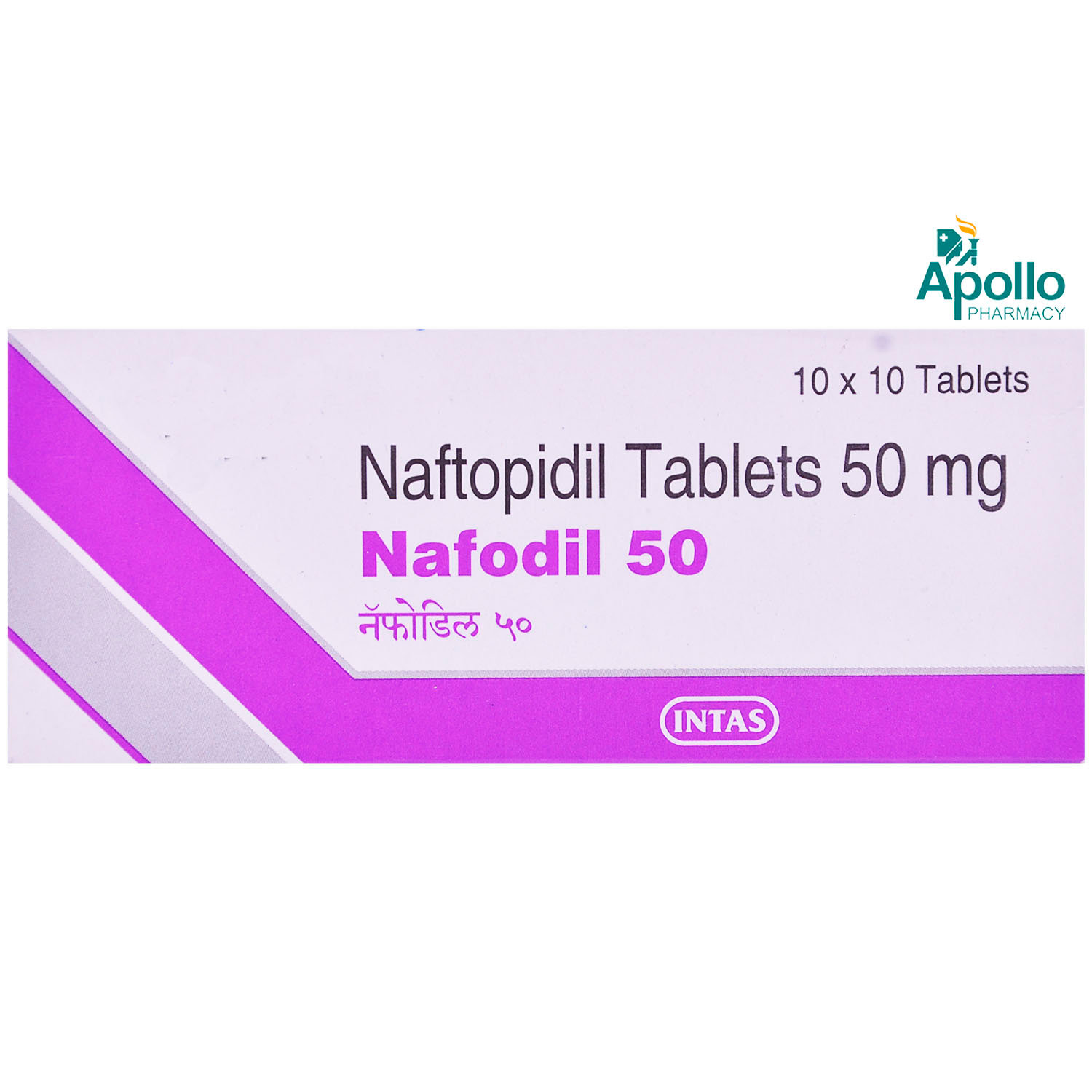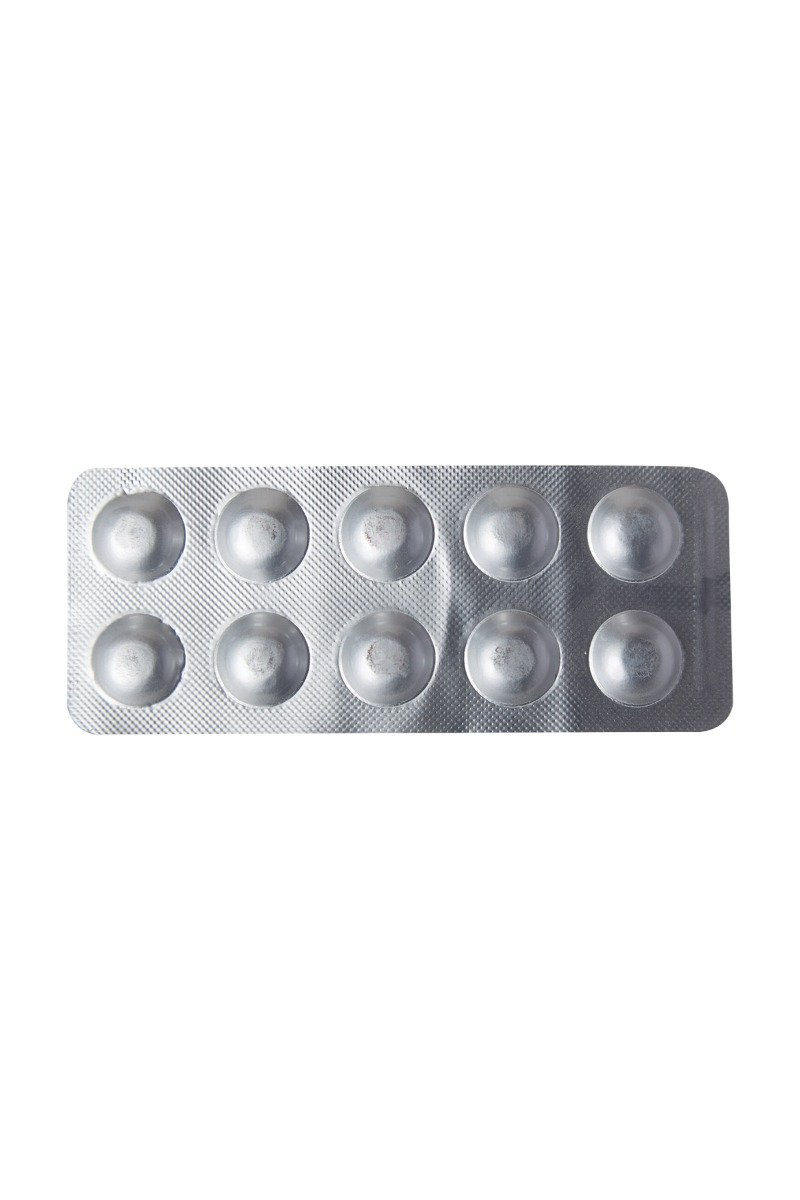Naftopidil
About Naftopidil
Naftopidil belongs to the category of medicine known as alpha-blocker, primarily used to treat benign prostatic hyperplasia - BPH (enlarged prostate). Benign prostatic hyperplasia (enlarged prostate gland) is a non-cancerous growth of the prostate gland caused due to overproduction of a hormone called ‘dihydrotestosterone’ in men. As the gland enlarges, it can lead to urinary problems, such as difficulty passing urine and frequent urination.
Naftopidil contains ‘Naftopidil’ which is an alpha-blocker. Naftopidil makes it easy to pass urine by relaxing the muscles of the prostate gland. Effectively, it improves Benign Hyperplasia Prostate (BPH) and relieves the symptoms of a difficult and painful urination.
Take Naftopidil as prescribed by your doctor. Your doctor will recommend how often you take Naftopidil based on your medical condition. Some people may experience dizziness, tiredness, nausea, vomiting, irregular heartbeat and headache. Most of these side effects of Naftopidil do not require medical attention and gradually resolve over time. However, if the side effects persist or worsen, please consult your doctor.
Naftopidil should not be taken if you have an allergy with Naftopidil and any ingredient of Naftopidil. Naftopidil should not be taken in the conditions like a history of liver and kidney disease. It is advisable to you do not drive while using Naftopidil as Naftopidil may cause dizziness that may affect the ability to drive or use machines. Naftopidil should not be used for children less than 18 years of age as safety and efficacy of Naftopidil for children has not established. Naftopidil is not recommended for women. You are also advised to wear a condom while having sexual intercourse, especially when your partner is pregnant, as Naftopidil is known to pass in semen.
Uses of Naftopidil
Medicinal Benefits
Naftopidil contains naftopidil (alpha-blocker), primarily used to treats the enlarged prostate gland in the male. Naftopidil makes it easy to pass urine by relaxing the muscles of the prostate gland. Effectively, it improves Benign Hyperplasia Prostate (BPH) and relieves the symptoms of a difficult and painful urination. It decreases the difficulty in passing urine.
Directions for Use
- Naftopidil can be taken after food or as advised by your doctor.
- Follow your doctor’s instructions on the dosage and timing of this medication.
- Swallow Naftopidil as a whole with a glass of water.
- Do not crush, break, or chew it.
Storage
Side Effects of Naftopidil
- Dizziness
- Tiredness
- Headache
- Nausea
- Vomiting
- Irregular heartbeat
Drug Warnings
Naftopidil should be taken with caution in people with liver or kidney disease, low blood pressure, prostate cancer history, or allergic to Naftopidil. For better results, Naftopidil should be used 30 minutes after a meal. During sexual intercourse with your partner, use a condom as Naftopidil passes in semen and affect pregnant women and the fetus (unborn child). It is advisable to contact your doctor for advice if you are pregnant or planning to get pregnant before taking Naftopidil. This Naftopidil may enhance the risk of temporary loss of consciousness caused by an unexpected decrease in blood pressure. Patients taking Naftopidil should be cautioned about driving, operating machinery, or performing hazardous tasks as it can cause drowsiness or dizziness. Naftopidil should not be used for children less than 18 years of age as safety and efficacy of Naftopidil for children has not established.
Drug Interactions
Drug-Drug Interactions: Naftopidil may interact with pain killers (aceclofenac), blood thinner (warfarin), medicines used for rheumatoid arthritis/inflammation in the joints (acemetacin), antianxiety medicines (acepromazine), antifungal medicines (abafungin).
Drug-Food Interactions: Avoid drinking alcohol as it may cause low blood pressure (orthostatic hypotension), dizziness, and drowsiness.
Drug-Disease Interactions: No interactions found.
Drug-Drug Interactions Checker List:
Safety Advice

Alcohol
unsafeNaftopidil should not be taken with Naftopidil as it may cause low blood pressure (orthostatic hypotension), dizziness, and drowsiness. Keep your doctor informed if you drink alcohol.

Pregnancy
unsafeNaftopidil is intended for use in men only; women should not take Naftopidil, especially pregnant women.

Breast Feeding
unsafeNaftopidil is intended for use in men only; women should not take Naftopidil, especially breastfeeding women.

Driving
cautionNaftopidil can make some people feel dizzy, so it may affect your ability to drive or operate machinery safely.

Liver
cautionNaftopidil should not be taken until prescribed. Regular monitoring of liver function tests is recommended.

Kidney
cautionNaftopidil should not be taken until prescribed. Regular monitoring of kidney function tests is recommended.

Children
unsafeNaftopidil is not recommended for children below 18 years. The safety and effectiveness of Naftopidil have not been established in children.
Habit Forming
Diet & Lifestyle Advise
- Avoid drinking alcohol, caffeine, and fizzy drink. Limit intake of artificial sweeteners.
- Maintain a healthy lifestyle and exercise regularly so that you do not feel heavy in the abdomen region.
- Also, drink less water in the evening and before sleeping to have a sound sleep and do not wake up frequently for urination.
- Any medication which may worsen urinary symptoms (medication for cold and cough) should be avoided.
Special Advise
Don't stand suddenly from a lying or resting position, as it may increase the risk of falls due to a sudden dip in blood pressure (orthostatic hypotension).
Patients Concern
Disease/Condition Glossary
Benign prostatic hyperplasia (BPH): It is the enlargement of the prostate gland. It is a non-cancerous growth of the prostate gland caused due to overproduction of dihydrotestosterone hormone in men. After age 50, most men develop an enlarged prostate gland putting pressure on the urinary bladder. It leads to restricted or obstructed urine flow, the urge to urinate frequently (especially at night) and the feeling of not emptying the urinary bladder.
FAQs
Naftopidil is used to treat benign prostatic hyperplasia (enlarged prostate).
Simple lifestyle changes may help you control your symptoms better. Try to urinate when you first get the need. However, take care not to push or strain to clear your bladder. Prevent drinking fluids (especially caffeine, alcohol) a few hours before going out or bedtime. It would help if you also prevented medicines that can worsen urinary symptoms. These consist of some over the counter medicines for cough and cold.
Naftopidil contains naftopidil (alpha-blocker), which primarily treats the enlarged prostate gland. Naftopidil makes it easy to pass urine by relaxing the muscles around the bladder exit and prostate gland. Effectively, it improves the symptoms of BPH like urine flow, hesitation, and incomplete bladder emptying.
No, taking any cold or cough medication along with Naftopidil should be avoided as it increases the urge to urinate. So, before taking any such medication, please consult your doctor.
Intake of Naftopidil may cause a sudden drop in your blood pressure leading to orthostatic hypotension. It usually occurs when one suddenly stands from a lying or resting position, increasing the risk of falls.
Benign prostatic hyperplasia (BPH) is a common illness affecting old people. 60% of males above the age of 60 and eighty percent of males above the age of 80 get benign prostatic hyperplasia. It is rare in people with age below 60 years.
Naftopidil may cause side effects like dizziness, tiredness, nausea, vomiting, irregular heartbeat and headache. Most of these side effects of Naftopidil do not require medical attention and gradually resolve over time. However, if the side effects persist or worsen, please consult your doctor.
Avoid drinking alcohol, caffeine, and fizzy drinks. Limit intake of artificial sweeteners. Maintain a healthy lifestyle and exercise regularly. Reduce stress by doing relaxation techniques. Remember to empty your bladder on time.




